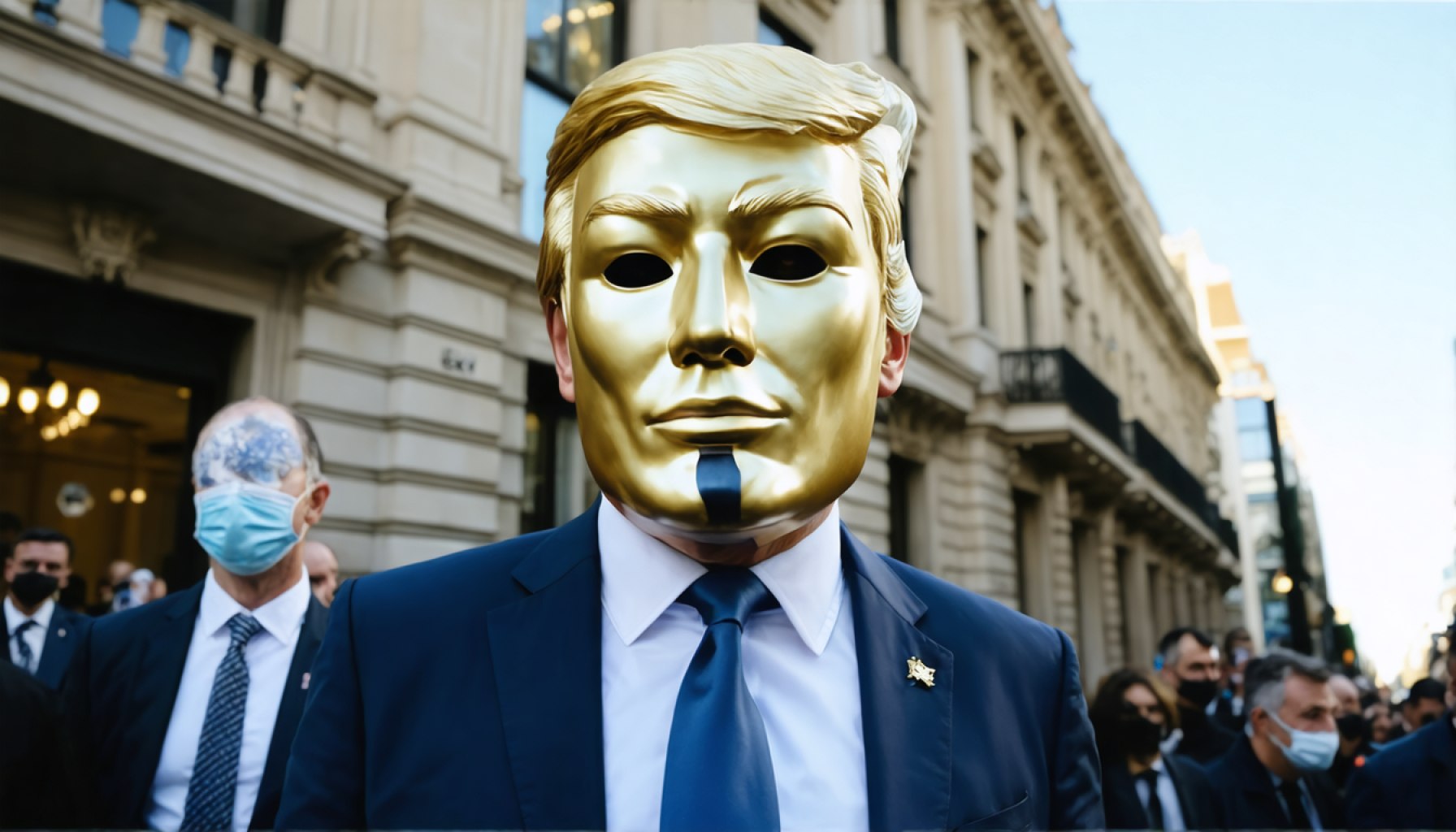- The ‘Mask Scandal’ in Madrid involves businessman Luis Medina, who profited from medical supply deals during the pandemic.
- Medina secured commissions on medical equipment sales without disclosing his earnings due to a lack of inquiry and obligation.
- This situation highlights the broader issue of transparency and ethics in business transactions during crises.
- Medina’s defense in court shed light on the fine line between necessity and deceit in undisclosed dealings.
- The case underscores the urgent need for scrutiny and accountability in corporate actions, especially when public safety is at risk.
- The trial raises important ethical questions about the balance between profit and accountability in times of global crisis.
The air in Madrid’s courthouse crackled with tension as revelations recently unfolded about a businessman’s clandestine dealings during the pandemic’s early days. In the heart of this storm stands Luis Medina, a sharp-suited entrepreneur who quietly siphoned profits from the desperate need for medical supplies.
As the world grappled with a sudden onslaught and hospitals teetered on the brink, Medina orchestrated deals without a whisper of his true intentions. He navigated the turbulent market with precision, securing commissions on the crucial lifeline of medical equipment. His reason for remaining tight-lipped? Simply, no one asked, and he believed there was no mandate to disclose his cut.
This undisclosed financial tangle came to light as Medina faced questioning in Madrid’s Superior Court. The ‘Mask Scandal,’ as it’s been coined, became emblematic of a larger issue—the lack of transparency during crises where profit can unexpectedly become king. Vivid courtroom sketches showed a composed Medina, defending his silence as necessity rather than deceit, shedding light on an area where shadows often linger.
Behind every mask exchanged and every glove traded lay whispers of opportunity. But this narrative isn’t just about figures and facts; it’s a stark reminder of the moral crossroads where business and ethics often clash. As governments and citizens alike push for clarity in corporate deals, Medina’s story underscores the urgent need for scrutiny in all transactions, especially when lives hang in the balance.
Even amidst chaos, the silent war for integrity must not falter. Medina’s trial beckons us to ponder: Should profit eclipse accountability when the stakes are humanity itself?
Unmasking the Truth: What Luis Medina’s Scandal Teaches Us About Business Ethics
How-To Steps & Life Hacks: Ensuring Ethical Business Practices
To avoid ethical pitfalls similar to the ones unraveling in the “Mask Scandal,” businesses can implement the following steps:
1. Implement Transparency Protocols: Engage transparent supply chains and document all transactions. Use digital records to ensure accountability.
2. Establish Ethical Guidelines: Develop a code of conduct. Employees and stakeholders should understand these values and adhere to them strictly.
3. Conduct Regular Audits: Independent audits can identify discrepancies or unethical practices before they escalate.
4. Promote Whistleblower Protection: Encourage employees to report unethical behavior without fear of retribution.
Real-World Use Cases
The scarcity during the pandemic exposed many businesses to ethical dilemmas, with several like Medina exploiting gaps for profit. Conversely, brands like Patagonia have been lauded for their ethical supply chain management. Their approach can be a benchmark of integrity in challenging times.
Market Forecasts & Industry Trends
Post-pandemic, markets are seeing a shift towards increased scrutiny and regulation. Transparency and fairness are now pivotal, driving trends towards more sustainable and ethical business practices. According to a report from McKinsey, there’s a rising demand for corporate ESG (Environmental, Social, and Governance) accountability.
Controversies & Limitations
The Medina case highlights a critical limitation in crisis management: the urgency can blur ethical responsibilities. This emphasizes the necessity of established ethical practices before crises strike.
Features, Specs & Pricing
While the specifics of Medina’s transactions are not public, typically, a lack of competitive pricing and transparency in fee structures are red flags. Ethical suppliers should clearly state margins and provide competitive pricing models.
Security & Sustainability
Security in transactions has a sustainability aspect—it ensures long-term business viability by maintaining trust and integrity. Firms are increasingly turning to blockchain for immutable transaction records, promoting trust and sustainability.
Insights & Predictions
As the world recovers, businesses will likely face stricter regulatory environments, stressing ethics, transparency, and accountability. This push for integrity is expected to grow, impacting how contracts are negotiated and executed.
Tutorials & Compatibility
For businesses looking to align with modern ethics, resources from organizations like ISO offer guidelines on sustainable business practices (ISO 26000 for Social Responsibility).
Pros & Cons Overview
Pros:
– Ethical Business: Fosters trust and builds a positive reputation.
– Transparency: Can increase competitive advantage in regulated markets.
Cons:
– Initial Investments: Implementing robust ethical practices may require significant upfront investment.
– Slow Processes: Ethical checks can sometimes slow down business operations.
Actionable Recommendations
1. Review your organization’s ethical guidelines.
2. Train employees on ethical behavior.
3. Adopt technologies that facilitate transparency.
Conclusion
Luis Medina’s trial is more than a legal battle; it’s a call to uphold ethics in business. By recognizing the vital link between ethics and success, businesses can emerge stronger and more respected. As citizens and consumers, it’s crucial to demand transparency, ensuring that profit never overshadows humanity.
For more insights into ethical business practices and current trends, visit McKinsey or ISO for comprehensive guidelines and resources.
